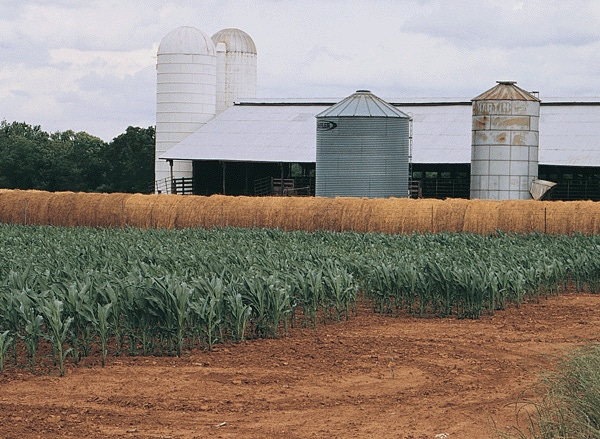
ASA seeks passage of estate tax legislation
• Estate tax legislation enacted in 2001 increased the exclusion amount from $675,000 to $3.5 million and reduced the tax rate on estates exceeding the exclusion from 55 percent to 45 percent in 2009. The bill repealed the tax entirely for 2010, but it will be reinstated in 2011 with an exclusion amount of $1 million and a top rate of 55 percent.
December 1, 2010

The American Soybean Association (ASA) participated in a press conference on Nov. 30 at the National Press Club in Washington, D.C., calling on Congress to enact estate tax legislation before Dec. 31, 2010.
Estate tax legislation enacted in 2001 increased the exclusion amount from $675,000 to $3.5 million and reduced the tax rate on estates exceeding the exclusion from 55 percent to 45 percent in 2009. The bill repealed the tax entirely for 2010, but it will be reinstated in 2011 with an exclusion amount of $1 million and a top rate of 55 percent.
“If not addressed by Congress, the high estate tax rate of 55 percent and low exclusion level of $1 million will very negatively affect the ability to pass farms, ranches, and small businesses from one generation to another,” said ASA Executive Committee member Joe Steiner, a soybean grower from Mason, Ohio. “Even small and very moderate-sized family farm operations would be negatively affected.”
With farmland in many regions selling for $5,000 per acre, it takes only 200 acres of land to reach the exclusion value of $1 million. A $1 million exclusion is inadequate to account for the value of machinery, livestock, and buildings with tractors now costing $150,000; combines costing $250,000-$300,000; and a single cow valued at $1,000.
Supports Lincoln, Kyl bill
ASA strongly supports the inclusion in a lame duck tax bill of legislation introduced by Senators Blanche Lincoln and John Kyl that would establish a $5 million exclusion and a 35 percent top tax rate. ASA joined a coalition of farm and commodity groups in writing to Congress on Nov. 9, to ask for permanent and meaningful estate tax relief, and has signed on to a letter of the same message to President Barack Obama.
“Family farmers and ranchers are not only the caretakers of our nation’s rural lands but they are also small businesses,” Steiner said. “The 2011 change to the estate tax law does a disservice to agriculture because we are a land-based, capital-intensive industry with few options for paying estate taxes when they come due. The state of our economy, coupled with the uncertain nature of estate tax liabilities, makes it difficult for family-owned farms and ranches to make sound business decisions.”
To press the issue with Members of Congress, ASA has issued a nationwide Action Alert to its members and supporters asking them to contact their elected officials about the importance of passing estate tax legislation during the current lame duck session.
“Passage of permanent and meaningful estate tax laws before the end of 2010 will strengthen the business climate for farm and ranch families while ensuring agricultural businesses can be passed to future generations,” said Steiner. “Allowing estate taxes to be reinstated without an exemption and rate that protect family farms puts many operations at risk and threatens succession to the next generation of farmers.”
ASA represents all U.S. soybean farmers on domestic and international issues of importance to the soybean industry. ASA’s advocacy efforts are made possible through the voluntary membership in ASA by over 22,500 farmers in 31 states where soybeans are grown.
You May Also Like



